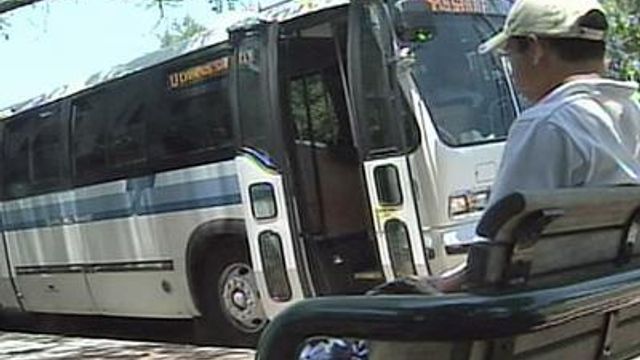Chapel Hill, Carrboro residents eagerly use free buses
It is estimated that transit systems statewide will lose about $10 million next year due to the rising cost of fuel. However, folks in Chapel Hill and Carrboro can still catch a free ride.
Posted — Updated"It's very convenient,” bus rider Stephanie Moultrie said.
About 26,000 passengers, a third of the population the routes serve in Chapel Hill and Carrboro, ride buses.
"Ridership has been going through the roof,” said Steve Spade, director of Chapel Hill Transit, which is a department of Chapel Hill town government.
The number of riders has more than doubled since the system stopped charging fares in 2002. Ridership is up about 15 percent from last year alone; April saw the largest ridership increase, up 30 percent.
Before the transit system went fare-free, it averaged about 2.6 million people a year. This year, ridership is expected to hit nearly 7 million.
"Clearly the ridership increase that we are seeing now nationally is due to fuel price increases,” Spade said.
Ridership hasn’t fallen off with University of North Carolina students leaving for the summer, either. The system had planned to park some 60-foot buses over the summer, but with ridership up, the buses are still on the road.
As gas prices rise, the Chapel Hill Transit has cut out marketing and postponed buying buses to maintain the no-fare system.
Even with those cuts, and state and federal funding, municipalities are paying more to keep the buses running.
"Which means that the town of Carrboro, the town of Chapel Hill, and the university end up feeling the full effect of a cost increase,” Spade said.
So far, that has been about $300,000 in diesel fuel.
The system has also upped its budget for fuel next year by about $400,000.
Chapel Hill also has several hybrid buses. A study is under way to compare the fuel efficiency between the hybrids and the diesel fleet.
"You don't have to worry about the cost of transportation, and what with the cost of gas rising, you can easily catch a bus,” Moultrie said.
• Credits
Copyright 2024 by Capitol Broadcasting Company. All rights reserved. This material may not be published, broadcast, rewritten or redistributed.





